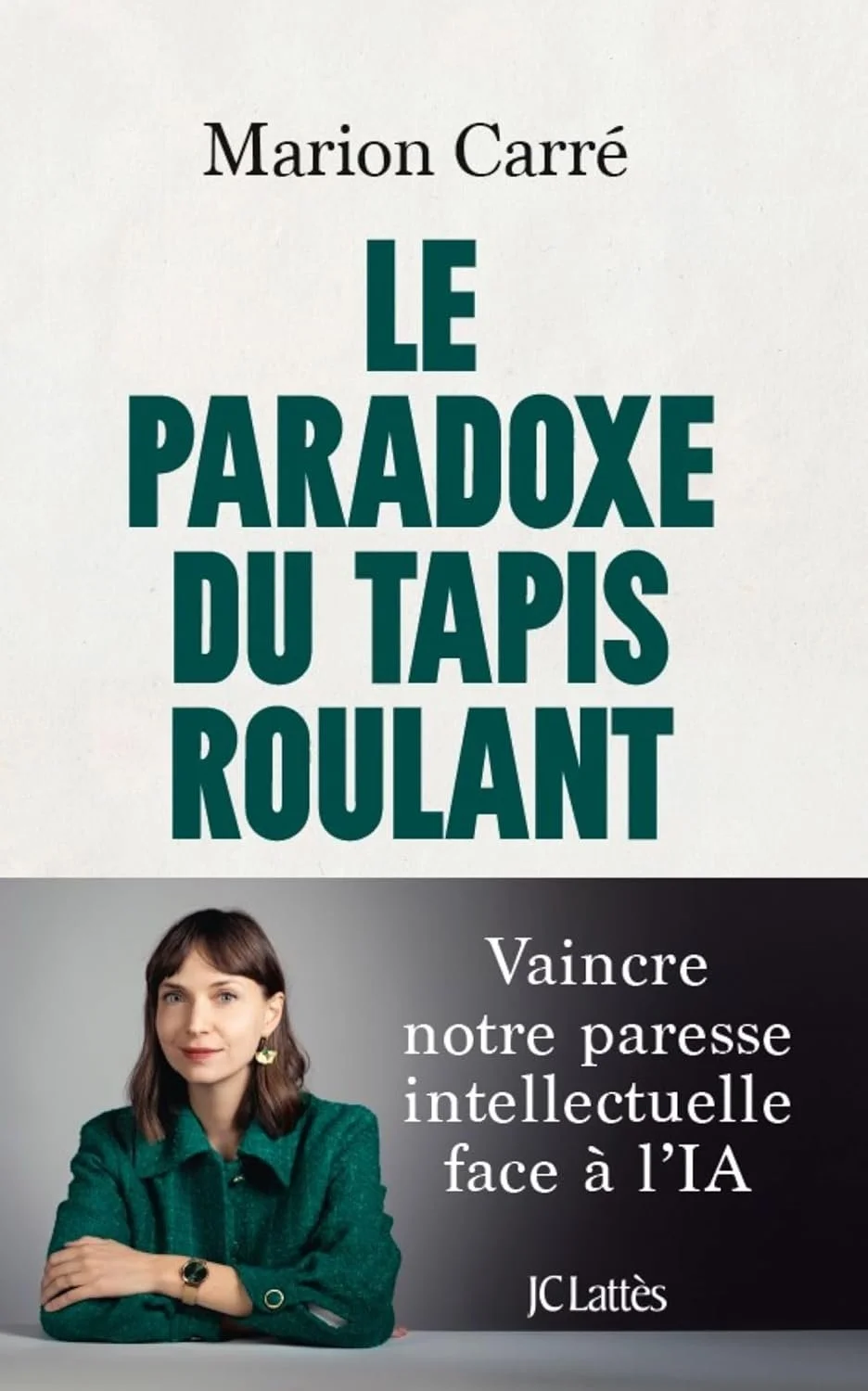THE MOVING WALKWAY paradox: RESISTING INTELLECTUAL LAZINESS IN THE AGE OF AI
Marion Carré
JC Lattès, 234 pages, 2025
Why you should take a look at it:
√ A call to rethink how to use AI wisely
√ A nuanced exploration of AI’s strengths, pitfalls, and limitations
√ Insight into the creative use of AI by a seasoned practitioner
In this inspiring and clear-eyed essay, Marion Carré identifies one of the greatest limitations of Artificial Intelligence: by accelerating our thought processes and our creativity, AI could take us all, unfortunately, in the same direction at the same speed…
Cultural industry sees generative AI as a promise of efficiency and profitability. For example, a sci-fi movie can reduce production time by 25 weeks using AI. But does faster production really mean better production? As a screenwriter once told Marion Carré “If AI gives you ten ideas, those are the ten ideas you should not use because those are the ones everyone can come up with.” In other words, AI produces the opposite of what it promises: it doesn’t make us creative, it makes us predictive. It locks us into a continuous, repetitive movement.
How can we still think and create in such a world? How can we conserve our critical thought and reinject originality into the system? Speaking from her extensive experience and expertise, Carre is well placed to point out the pitfalls of using of AI indiscriminately. She also indicates how to use it as a catalyst and a tool for reinforcement, rather than a substitute for our own intelligence. These are the stakes of the moving walkway paradox: we can still for now control its speed and its direction, but it is up to us to trace its trajectory.
Marion Carré is the co-founder and president of Ask Mona, a pioneering company that uses artificial intelligence to improve the performance of cultural institutions, such as Le Louvre, Centre Pompidou, Louis Vuitton Foundation and Rome's Colosseum). She has also been featured in Forbes 30 under 30: https://www.forbes.com/profile/marion-carre/. Carré also teaches at the Sorbonne university, and published the first biography of French AI pioneer Alice Recoque: Qui a voulu effacer Alice Recoque? (Fayard, 2024).

